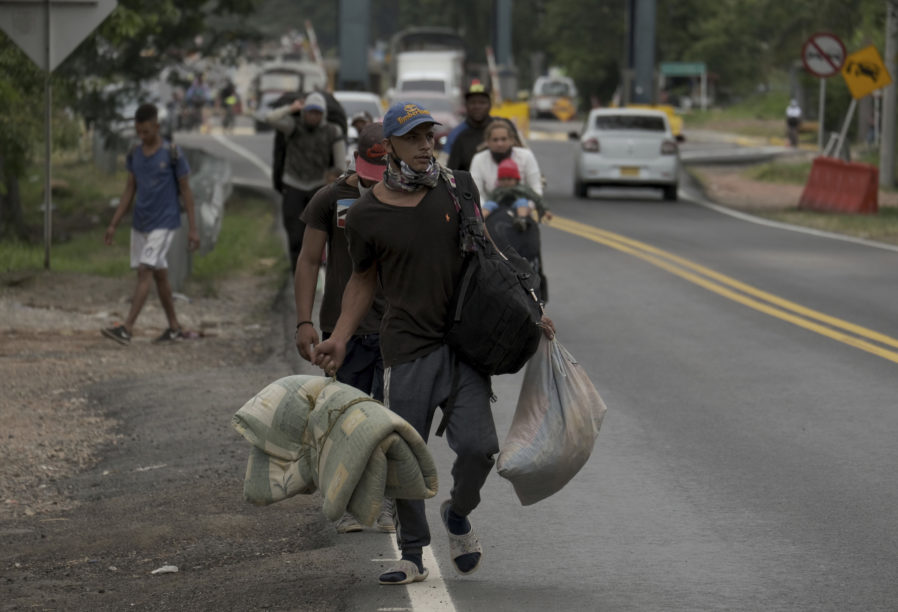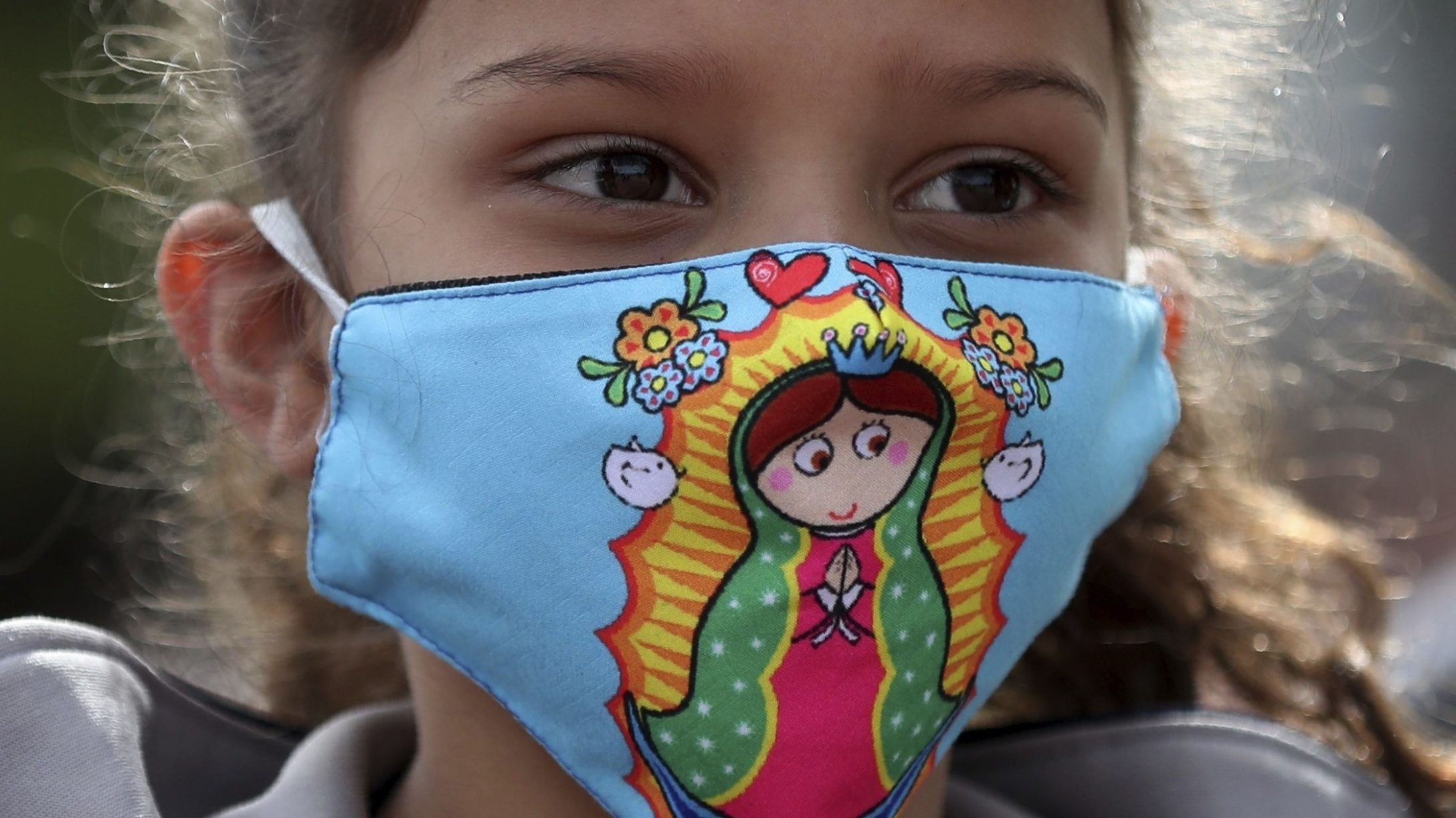It’s been two years since I last saw my mom in person, and I have not seen my niece or my brother for six years. The last time we were together was at the airport and my niece, then a year and a half old, called me from the immigration checkpoint: Auntie come. My family and friends are dispersed throughout the world.
It’s human nature to take our stability for granted until the floor is moved. For many decades Venezuela offered its citizens the best prospects in the region, so very few Venezuelans thought of emigrating. But over the last twenty years, violent changes in our political and social situation combined to create the greatest economic crisis in the history of the country. For many, a salary no longer provides even enough to survive; for many Venezuelans the crisis represents nothing less than the destruction of their future, of any chance to build a stable, sustainable life.
For a lot of my family and friends, emigration represented giving up careers, closing businesses, selling all their goods and starting life from scratch in a new country, adapting to new customs and working in professions they never imagined. My brother-in-law, for example, has a degree in mathematics, a master’s degree and advanced studies in engineering, and he is currently a truck driver in Peru. He is happy because, for him, it has been an adventure that has allowed him to travel all over the country, and to receive a higher salary than he would have had as a teacher in Venezuela; still, the country’s changed circumstances stole the life he’d studied, worked toward, and had started to build for himself.
The Venezuelan passport has lost all its value now, and has indeed become a liability. In recent years Panama, Chile, Peru, Curaçao and Ecuador have imposed restrictions on Venezuelan immigration, and since 2019, Venezuelans have not been allowed to enter Chile without a visa, the acquisition of which may take months.
The Venezuelan Diaspora Observatory reports a marked rise in migration since 2016, with numbers exceeding one million migrants per year. According to the United Nations Refugee Agency and the Organization of American states it’s the largest migration in the hemisphere, totaling more than five million Venezuelan migrants and refugees. Venezuelans are among the largest migrant populations in Colombia, Chile, Panama, Argentina, Peru and Ecuador.

The crisis is so severe that migrants are resorting to methods of escape that would have been unimaginable in the past. For example, those who do not have the economic resources to leave by plane or bus have attempted to walk across the Coloumbian border and even as far as Ecuador and Peru, journeys on foot of hundreds or thousands of kilometers facing extreme cold, hunger and exhaustion. Migrants can spend weeks on the open road, according to a census conducted by the United Nations Office for the Coordination of Humanitarian Affairs.
Before the pandemic there were aid points where Venezuelan migrants could rest, drink water and eat, but quarantine measures have forced the closure of these tents. At the beginning of the quarantine, we saw a reverse of this process, in which some Venezuelans returned, having lost jobs to the pandemic in other cities. But months of confinement during an economic collapse of years’ duration are now making desperate Venezuelans willing to venture back to Cucuta and other border towns and then out of the country.
Some have even taken the risk of going out on rafts and fishing boats to islands such as Trinidad and Tobago, Aruba or Curaçao. The ‘coyotes’ in this case must be paid amounts that exceed US$200 and the danger is extreme. In 2019 one of the boats heading for Trinidad and Tobago sank and 20 people died.
A few days ago, the government of Trinidad and Tobago deported a group of 29 Venezuelans, including 16 children, for entering illegally. They were forced to return to Venezuela immediately in two small boats in bad weather, and were missing for 24 hours, causing a great stir in Venezuela. The Inter-American Commission on Human Rights and Amnesty International showed concern for the refugees, urging the authorities of the island to comply with international treaties. The refugees were rescued and returned to Trinidad, where they await a decision.
In September of this year a group of Venezuelans got lost in the Chilean desert after having been stranded by the ‘coyote’ to whom they’d paid US$300. The Chilean borders were closed due to the pandemic, and the group had been trying to enter through Peru. Fortunately, a group of motorcyclists found them as they wandered through the desert without food or water.
Some Venezuelans have emigrated and done very well, landed on their feet. But even then these separations are often grievously painful, as they have been for me. People leave with the objective of sending remittances back to provide sustenance to their families, but those who are left experience feelings of abandonment and estrangement.
My 10-year-old cousin left Venezuela with her mother a couple of years ago. The joy of being reunited with her father after many months was mixed with the sadness of knowing that she would be away from many others she loves. She cries at night before falling asleep sometimes; it’s sad to think children should be growing up without a carefree and loving childhood. I miss her fashion advice, and her breath-taking hugs.
My dear friend Alejandro Marcano emigrated from Venezuela to Argentina, and then in 2018 decided to settle in Santiago de Chile because of the better job prospects there. He was born with Morquio syndrome, but this serious condition has never held him back: he graduated from college with excellent grades; he participated in several singing contests, one of them on national television; and he worked in corporate communications for companies like General Motors and Bridgestone Firestone.
Alejandro told me before he left Venezuela about his fears, without letting them paralyze him. That’s his nature. He was okay for a while in Chile, but during the quarantine, he developed headaches and back pain. The cause was found in late October; he’s developed a cranio-cervical instability requiring an urgent and complicated operation to avoid irreversible damage. Friends have started a crowdfund for him. Disasters like this are challenging to deal with in a stable society, but when the government and economy have collapsed, the additional layers of difficulty stack up and overwhelm people, traumatize them.
My paternal grandmother, 93, grieves to think she may never see her grandchildren again. My maternal grandmother, 84, cried along with my mom the last time they hugged goodbye. My sister-in-law’s grandmother, who is Spanish and had lived in Venezuela since her children were little, died of something like sadness when she had to leave Venezuela to return to a Spain she no longer recognized.
For those who live in countries where there is still some freedom, where there are opportunities, it can be difficult to understand why so many are leaving Venezuela. This is an outcome for our once-prosperous and stable country that none of us imagined we’d ever be facing. But people come to find they have no choice. And this comes with the pain of knowing that goodbyes are likely for good. As many say nowadays: You have to be brave to leave and brave to stay.






